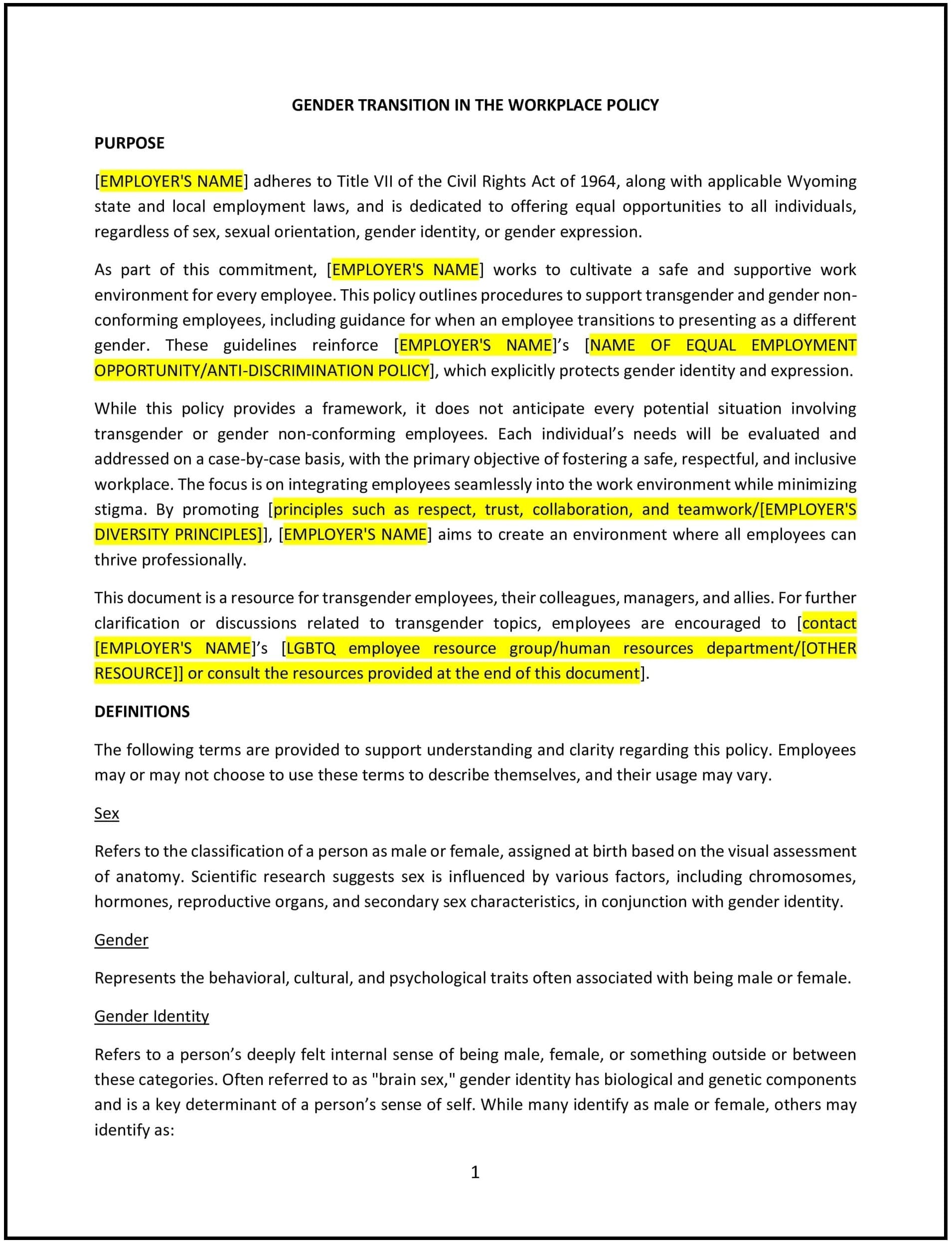Gender transition in the workplace policy (Wyoming): Free template
Got contracts to review? While you're here for policies, let Cobrief make contract review effortless—start your free review now.

Customize this template for free
Gender transition in the workplace policy (Wyoming)
In Wyoming, a gender transition policy helps businesses create a supportive and inclusive environment for employees undergoing a gender transition. This policy demonstrates the organization’s commitment to diversity, respect, and equal treatment while aligning with state and federal anti-discrimination laws.
This policy outlines procedures for supporting employees during their transition, ensuring respectful communication, and fostering a workplace culture of understanding and inclusion.
How to use this gender transition policy (Wyoming)
- Define the policy’s purpose: Clearly articulate the organization’s commitment to supporting employees during a gender transition and promoting a respectful workplace.
- Establish communication guidelines: Provide instructions for using correct names, pronouns, and other respectful language when addressing transitioning employees.
- Outline transition planning: Include steps for creating a transition plan in collaboration with the employee, their supervisor, and HR. Address topics such as name changes, restroom access, and adjustments to dress codes.
- Provide training: Offer training to employees and managers to raise awareness about gender identity, inclusivity, and anti-discrimination practices.
- Support compliance: Ensure the policy aligns with Wyoming’s laws and federal regulations, such as Title VII of the Civil Rights Act, to support legal and ethical standards.
Benefits of using a gender transition policy (Wyoming)
A gender transition policy provides several advantages for Wyoming businesses:
- Fosters inclusivity: Creates a welcoming environment where all employees feel valued and supported.
- Promotes legal compliance: Aligns with anti-discrimination laws, reducing the risk of legal disputes and ensuring fair treatment.
- Enhances workplace morale: Demonstrates a commitment to diversity and respect, boosting employee trust and satisfaction.
- Improves retention: Supports employees during personal transitions, encouraging loyalty and long-term engagement.
- Reflects community values: Emphasizes Wyoming’s commitment to fairness and equal opportunity in the workplace.
Tips for using a gender transition policy (Wyoming)
- Be proactive: Communicate the policy to employees during onboarding and ensure it is accessible in the workplace.
- Encourage open dialogue: Foster a safe environment where employees feel comfortable discussing their needs and concerns.
- Tailor support: Work with transitioning employees to develop individualized plans that address their unique circumstances and preferences.
- Address conflicts respectfully: Provide clear procedures for handling disputes or concerns related to gender transitions in the workplace.
- Update regularly: Review the policy periodically to reflect changes in laws, workplace dynamics, or employee feedback.